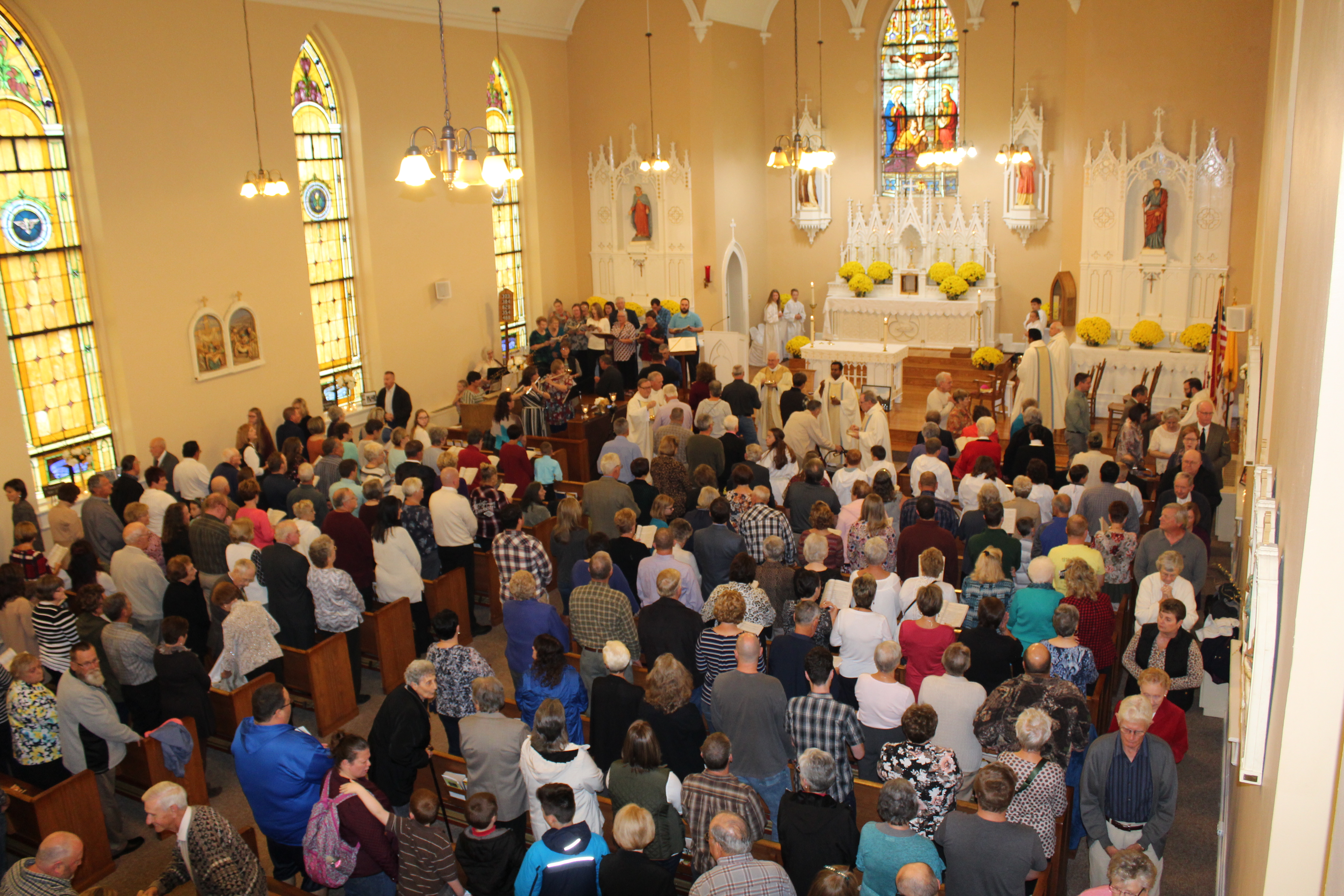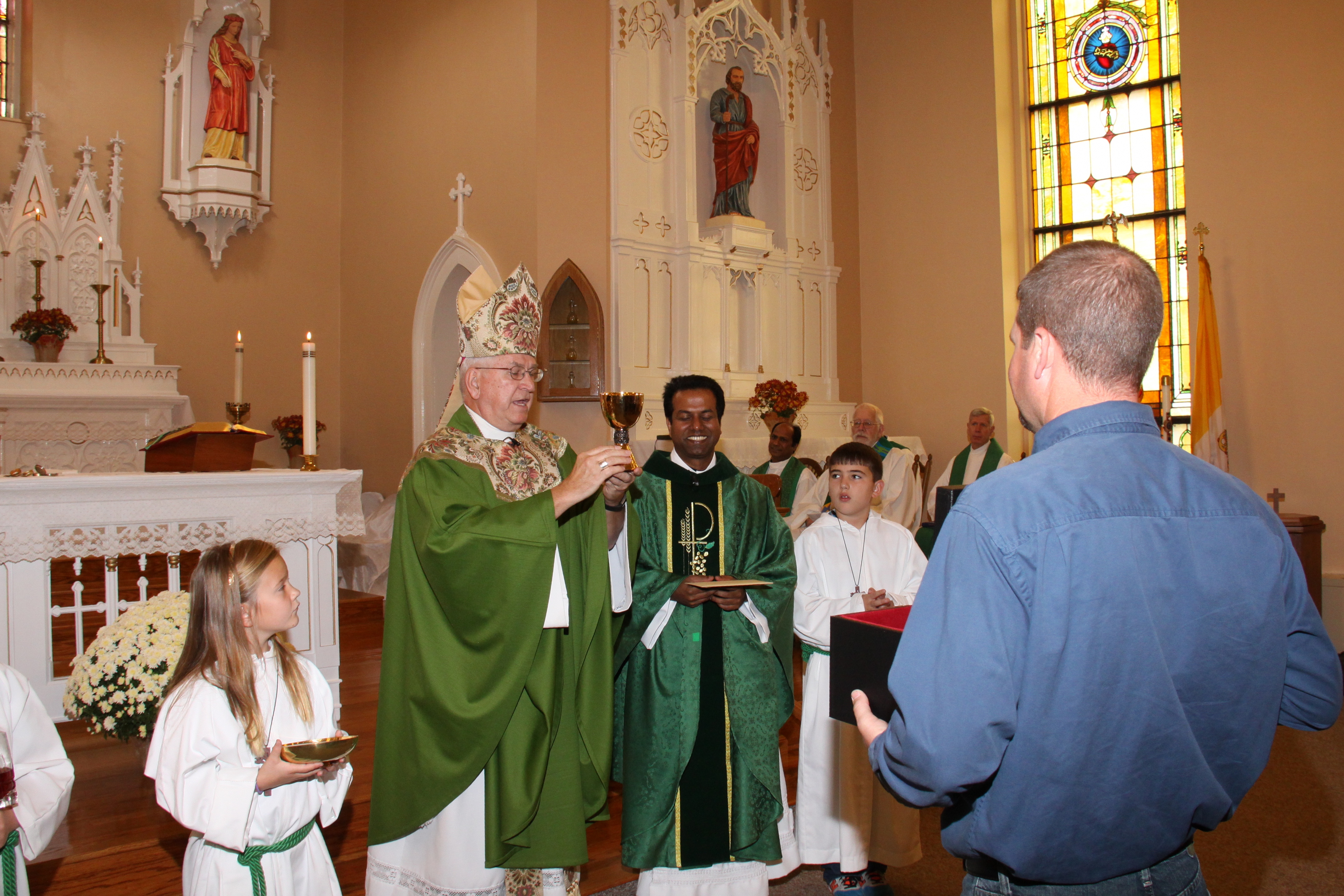St. Theresa of Avila
HISTORY OF OUR PARISH
St. Theresa church located in Meade County, while not the oldest Catholic Church in the state of Kentucky, it is the oldest in Meade County. Settlers began arriving in Meade and Breckinridge Counties in the late 1700’s.
These Catholic settlers were served by missionary priest who resided in Marion and Nelson Counties. The services were held in the pioneers’ log homes when the priest traveled through. These homes were called “church stations,” neighbors would gather here for Mass. The first recorded visit was in 1805.


MASS SCHEDULE:
-
Tuesday – 8:30 am
-
Thursday – 8:30 am
-
Saturday – 6:00 pm at St. Mary (January thru June)
-
Saturday – 6:00 pm at St.Theresa (July thru December)
-
Sunday – 8:30 am at St. Mary
-
Sunday – 10:30 am at St. Theresa
Meet The Pastor

-Rev. George Illikkal
Father George has been the Administrator of St. Mary Magdalen of Pazzi, Payneville and St. Theresa of Avila in Rhodelia since June 22, 2016.
Father George was ordained on January 2, 2005. He is a member of the Carmelites of Mary Immaculate (CMI). He is a native of Kerala, India and studied at Dharmaram Vidya Kshetra (Pontifical Athenaeum of Philosophy and Theology), Bangalore, India. He earned a Master of Psychology from Christ University in Bangalore, India.
His first assignment was Associate Pastor at St. Theresa’s Church in India. Then he served as minor seminary rector for 3 years in the Carmelite of Mary Immaculate Religious Order and served as pastor at Galilee Church before coming to the USA. Father George has a brother and a sister and his parents are deceased. His last assignment has been at St. Augustine in Lebanon, KY and Holy Name of Mary in Calvary, KY.
Sacramental Information
The Seven Catholic Sacraments
The Latin word sacramentum means “a sign of the sacred.” The seven sacraments are ceremonies that point to what is sacred, significant and important for Christians. They are special occasions for experiencing God’s saving presence. That’s what theologians mean when they say that sacraments are at the same time signs and instruments of God’s grace.
The sacraments are:
- Baptism
- Confirmation
- Eucharist
- Penance
- Anointing of the Sick
- Holy Orders
- Matrimony
“Baptism incorporates us into Christ and forms us into God’s people. This the first sacrament pardons all our sins, rescues us from the power of darkness and brings us to the dignity of adopted children, a new creation through water and the Holy Spirit. Hence we are called and are indeed the children of God” (Rite of Christian Initiation of Adults, General Introduction, #2).
Through the sacrament of confirmation, the baptized “are more perfectly bound to the Church and are enriched with a special strength of the Holy Spirit. Hence they are, as true witnesses of Christ, more strictly obliged to spread and defend the faith by word and deed” (Catechism of the Catholic Church, #1285).
“The liturgy is the summit toward which the activity of the church is directed; it is also the source from which all its power flows. For the goal of apostolic endeavor is that all who are made children of God by faith and Baptism should come together to praise God in the midst of his church, to take part in the sacrifice and to eat the Lord’s Supper.” (Constitution on the Sacred Liturgy, #10)
“Those who approach the sacrament of Penance obtain pardon through God’s mercy for the
offense committed against him, and are, at the same time, reconciled with the church which they
have wounded by their sins and which by charity, by example and prayer labors for their
conversion” (Dogmatic Constitution on the Church, #11 ).
“This sacrament gives the grace of the Holy Spirit to those who are sick: by this grace the whole person is helped and saved, sustained by trust in God, and strengthened against the temptations of the Evil One and against anxiety over death. Thus the sick person is able not only to bear suffering bravely, but also to fight against it.” (General Introduction, Pastoral Care of the Sick, #6).
“In virtue of the sacrament of Matrimony by which they signify and share in the mystery of the unity and fruitful love between Christ and the Church, Christian married couples help one another to attain holiness in their married life and in accepting and educating their children.”